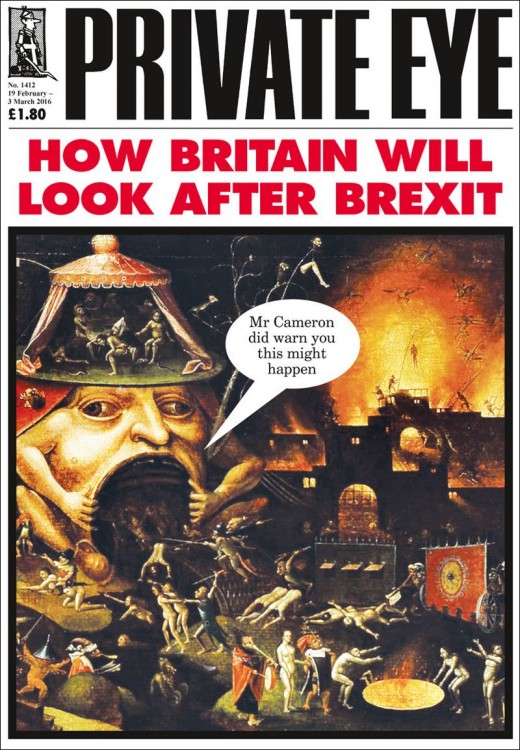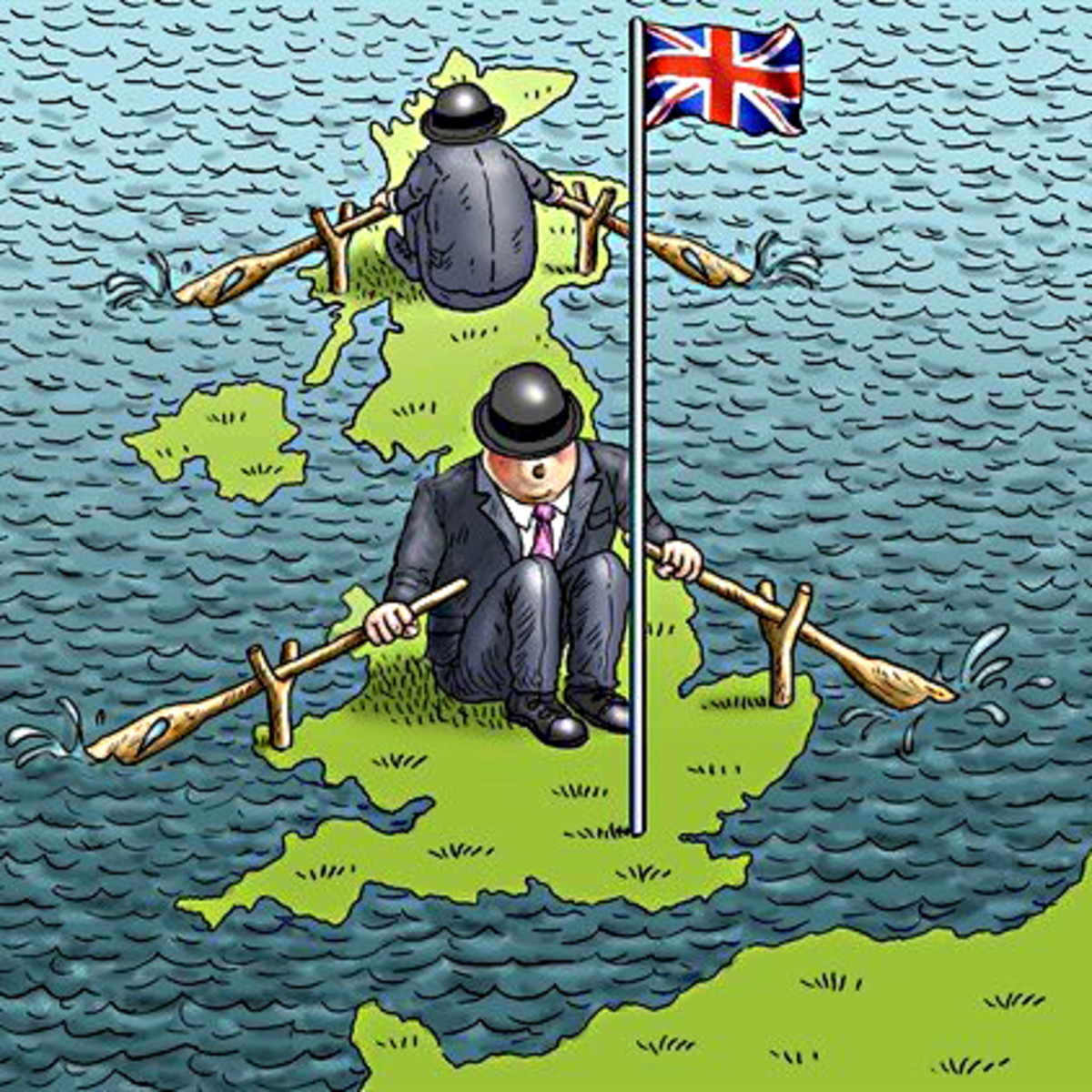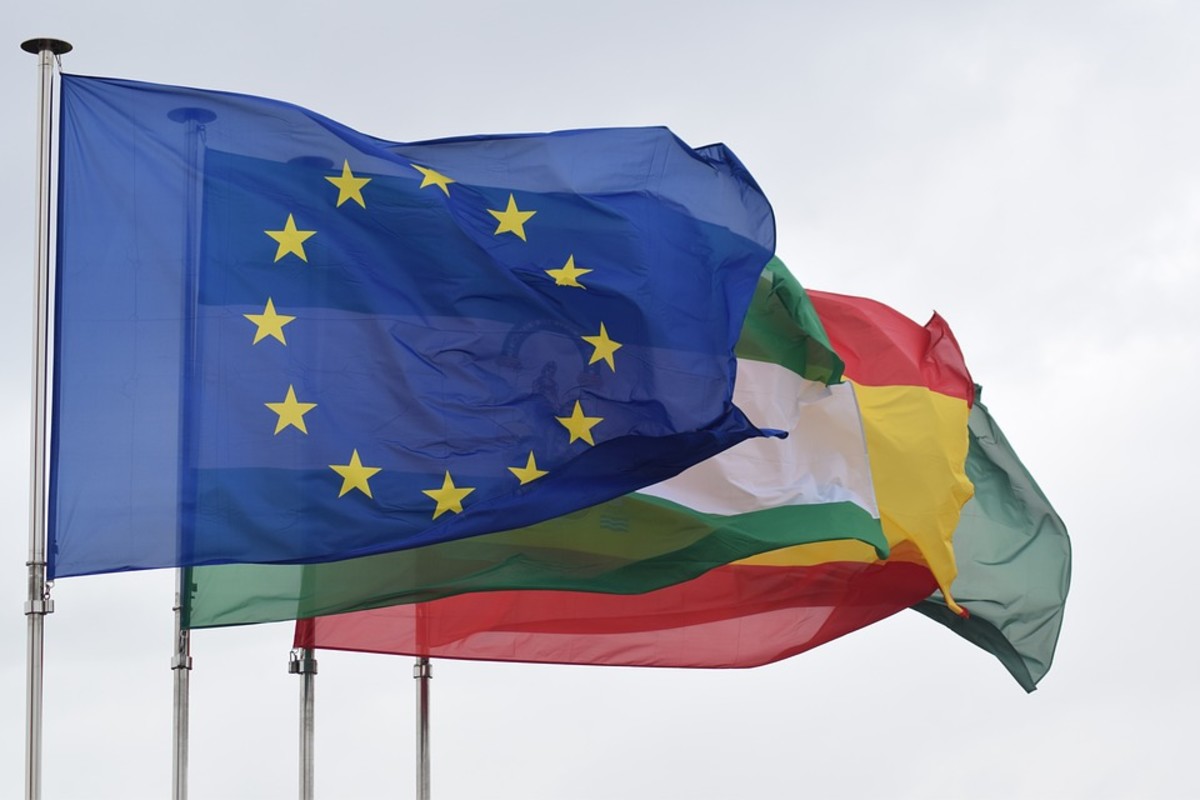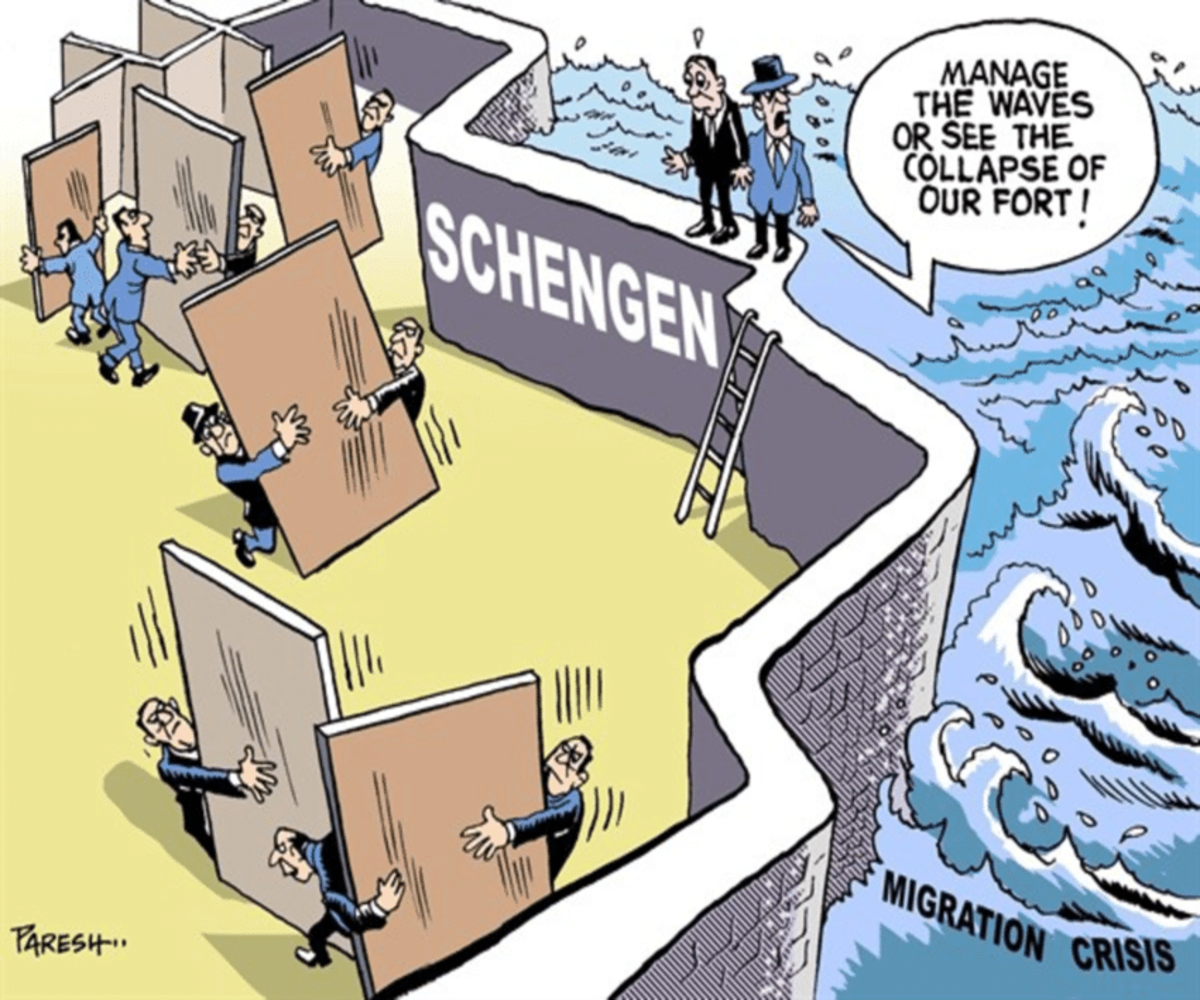BREXIT: Why Britain can no longer go back to Splendid Isolation. An appeal to remain in the European Union.
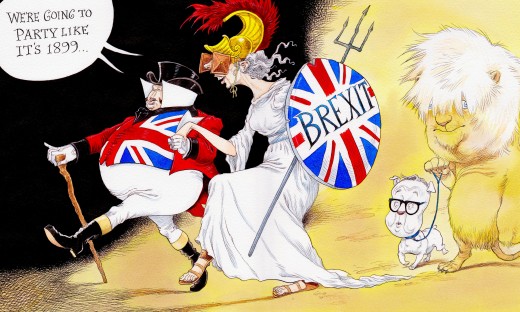
I am a first generation immigrant in the United Kingdom, and like most new immigrants I am very fond of my adopted country. Before coming to the UK, I grew up in post independence India, where the colonial heritage was by then remembered mostly in nostalgic terms; and I formed by own picture of the country by reading Biggles and Billy Bunter, and by listening to old Vera Lynn songs and to the music of Elgar. I admired Mountbatten, was a Guy Gibson fan and thought Curzon was way ahead of his times in the way he administered India at the turn of the 20th century.
Today, in my mid sixties, I am a supporter of the Royal Family, love the English countryside, the politeness all around me on the streets and motorways, and, at the cost of sounding trite, fish and chips. One of my special joys is to go motoring in the Highlands. I held my breath while the Scots went through the referendum, and then breathed a sigh of relief when they voted to stay in the Union.
I say all this by way of background to just set out my credentials when I assert that I do realise, and empathise with the Brexiteers, those in favour of leaving the EU.
The people who are most in favour of leaving the EU tend to be
- elderly males in the home counties and other prosperous shires in England,
- farmers (even though they benefit from the common agricultural policy),
- tory supporters (I am one as well), except for the farm lobby which has it's share of labour supporters.
On the other hand the following are broadly in favour of remaining
- both sexes in the other nations and females in England,
- labour supporters (though a minority support Brexit)
- young people of both sexes across the UK
The following issues are the ones most commonly cited by those in favour of leaving:
Uncontrolled Migration from the newer and relatively poorer countries of central and eastern Europe.
This is a real issue, with it's pros and cons. On the positive side there is no doubt that the majority of new immigrants add value by working hard, paying their taxes and often taking up many of the (mainly menial) jobs which the traditional workforce generally shy away from. On the other hand, they undercut wages (often offering to work for less than the minimum wage), the entrepreneurs among them often undercutting traditional vendors when quoting for say plumbing and painting jobs. Their children put pressure on local schools and their families put pressure on the NHS and the housing stock. However it is fair to say that only a small minority among them claim benefits. And the other complaint, often cited as an aside, is that they affect the social cohesion of the areas they settle in, often in suburban and rural areas, by being "different' and not integrating by mixing only among themselves and living in their own cultural and social milieu, all very alien to the established citizenry.
There is no doubt that Britain is the Holy Grail, the magnet that draws most immigrants, not Germany, not France but this island, even though most of them are from non English speaking countries. In this we are the victims of our own success and the image of Britain that has been created and perpetuated over the years.
Historically successive British governments have tended to do the "right" thing morally over the years without thinking of the after effects, basically unintentionally encouraging immigration.
Over the last twenty years, every government in power, be they Tory, Labour or Coalition, have been the most enthusiastic supporters of expanding the EU eastwards. Britain was also the only big, old EU member, ahead of Germany and France, in offering unrestricted access first to Romania and Bulgaria at the end of their transition periods. And now, whatever the Prime Minister might say, it is a fact that Britain has been a supporter of Turkey's membership. It is of course quite another matter that practically, this is unlikely to happen for many, many years and the bogey which the Leave campaign has raised in this respect is pure scaremongering.
It is instructive in this respect to examine another similar situation in recent history. With the advent of decolonisation, the Commonwealth started expanding rapidly starting with India and Pakistan. At that time Britain promised automatic right of abode in the "mother" country to all Commonwealth citizens. However when there was a steady and growing stream of immigrants in the fifties and sixties from the Caribbean and from South Asia, there was a similar outcry like today's about the changing ethnic mix and it's effect on social cohesion. And as a result, free movement and right of abode was gradually curbed even though this was earlier, an article of faith for the mother country of the Commonwealth.
It is true today, that as the rules stand, free movement within the EU cannot be curbed. But David Cameron has already made a chink in the armour by ensuring that benefits for new immigrants will only start after four years.
And let us look at the bigger picture. It is almost certain that free movement within the EU will gradually be curbed as reality bites. The initial push in this direction has already happened with the refugee crisis, even though the refugees are not EU citizens. The Schengen's free borders concept is already compromised. It is almost certain that the concept of free movement within the EU will gradually be tightened, either indirectly, for example by restricting benefits, or more directly.
Also if and when Turkey enters, with the prevailing mood in Germany and France, free movement will almost certainly not be on offer, whether or not such action requires treaty amendments. The proof of the pudding is out there. Turkey and the EU so far have not even been able to agree visa free travel for Turkish tourists, even though both sides want it.
I do believe that the best way for Britain to curb free movement and mass migration from the new EU entrants is to be able to gradually influence the process from inside, rather than enforce unilateral controls following Brexit.
The Effect of the European Court of Human Rights over ruling the judgements of British Courts.
This is really a storm in a tea cup. All the indignation in this respect arises from the miniscule number of cases where an order of a British court ordering deportation of a notorious foreign terrorist has been stopped by the ECHR on the grounds that the person might be tortured on his return to his home country. One can have various views on this but without getting into that aspect, the cases are few and far between to trigger a leave vote. Statistically British court decisions have been upheld much more often than the other way around. It is a bit like saying that if the World Trade Organisation rules against Britain a few times, Britain should leave the WTO.
Too Many European Laws which we don't like.
What are we talking about here? No curved bananas! Metric versus imperial weights? Too many absurd health and safety rules? Or the various employment protection laws? If we opt for Brexit tomorrow which of these laws will we actually repeal, will we actually make our health and safety laws less stringent? Will we water down our employment protection laws? Again if we are inside the EU we will we able to do much more to influence future EU legislation, even in those areas where there is qualified majority voting.
This issue really feeds into my next point.
The Sovereignty Issue.
We must take back our sovereignty! Parliament must be supreme is the rallying cry of the Leave campaign. Of course there is a sharing of sovereignty in today's interdependent world. Britain shares it as part of the United Nations, as part of NATO, as part of the WTO, as part of the International Criminal Court.
As the title of this essay says Britain can no longer exist in splendid isolation, with the decisions of Westminster ruling supreme in over a third of the planet.
I think there is often confusion over sovereignty and federalism. It is quite clear that Britain does not want "ever closer union", the big majority including the Remain campaign is clear on this aspect. Remember Mrs Thatcher's "federalism by the back Delors"! So let's try and break down the sovereignty concept. First let's look at the fiscal and monetary aspects. We are not part of the Euro and will never be. So we will never be drawn into the gradual fiscal and monetary consolidation which is happening in the EU. Critics might say there are issues such as the minimum VAT rate to which we are subject, but those rules are to harmonise the single market (of which we are great supporters) rather than to achieve fiscal congruence.
The next aspect is social policy over which the last Labour government surrendered our veto, unwisely in my opinion. But let's have a reality check here. Which actual elements of EU social policy will we actually roll back if we exit the EU. There is also an element of hypocrisy here. Britain, along with other EU states, is insisting that Turkey harmonises it's social policy and legislation before it can have a shot at the top table, yet at the same time it is grumbling about the same policies and laws which it wants Turkey to adopt. This aspect, in my view, is purely a sentimental objection of the Brexiteers.
The last aspect is judicial supremacy. Here again Britain has to conform to many international agreements, whether over the seas and space for example. It can no longer colonise Antarctica as it could have in Victorian times. It is subject to trade laws which sometimes run counter to Britain's interests. Britain's "independent" nuclear deterrent is very closely aligned to America's.
The joker in the pack here is really the human rights aspect. I won't dwell on this here as I think I have already covered it under the ECHR paragraph above.
Too Expensive?
A lot of numbers have been bandied about, gross numbers as well as net figures after the rebates and subsidies which flow back. It has been argued that we do not control the rebates and subsidies as these are in the hands of unelected Eurocrats. Incidentally bureaucrats in every country, including Britain are unelected. Like British bureaucrats, Eurocrats implement rather than formulate policy. Policy is made by the European Parliament, which is elected. The Commissioners are eminent people from each member country, no different from the Lords.
The Leave campaign is quite right when they say there is a lot of wastage and fat in the EU. Again this is an aspect that should be addressed urgently and Britain has a lot of supporters here among the member states. But again this is best addressed and corrective action initiated when Britain is sitting around the table.
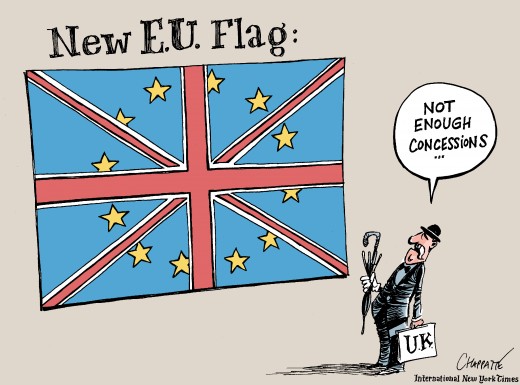
And if we Exit?
"Britain punches above it's weight" is an oft heard phrase.
In the days of Empire Britain was the world's pre-eminent heavyweight and led the rest of the world in terms of both hard power and soft power.
But since the second world war, a greatly diminished Britain has had to punch above it's weight to retain it's prestige and influence and has been generally successful in doing so. And it has done so primarily through clever and strategic alliances. The most important of these has been the special relationship with America, coined by Churchill and part of the British lexicon ever since. It is fair to say that though the term is often heard in Britain, it is almost never heard across the pond. For America Britain is one of it's principal allies.
If Britain exits the EU, it will certainly move down in America's reckoning as to how important it is to America in geo-political terms. President Obama has made his views quite clear on this subject. America counts on Britain to present the Anglo American point of view at the European high table where the world view could very often be quite different.
It is generally agreed that the Pound will take a beating. The Brexit camp justifies it by saying it is a price well worth paying. Is it? With the accompanying inflation and higher interest rates? The independent fiscal policy of Britain which has served it so well might then well become a hostage to fortune. The Brexit camp cites that Britain is the fifth largest economy and can well survive the separation and should be able to negotiate trade deals on its own. Japan has now been in recession for over a decade even though it is the third largest economy in the world (down from its earlier position of number two). Can Britain go the same way? Can it be a repeat of the pre-Thatcher years when Britain was the sick man of Europe and was reconciled to the orderly management of decline?
Britain is an island with a very strong cultural identity which forms the core of its soft power. But it has never been insular. Retreating from the EU will imply an insularity which is not characteristic of the country. Europe realises and understands that Britain is different and therein lies its strength.
Let's do the right thing then on June 23rd and vote to remain.
